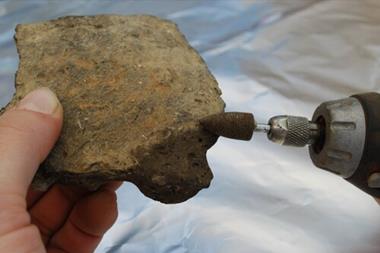UK Research and Innovation (UKRI) is to replace nine doctoral training schemes with two new programmes across the biological sciences, engineering and physical sciences, and natural and environmental sciences. Investment of more than £500 million will support about 4800 PhD students over the next three years at a similar level to previous years.
UKRI is working to simplify and harmonise PhD studentships and early career fellowships under a UKRI-wide umbrella rather than individual research councils allocating them. In January this year, it released details on funding for two new schemes. Doctoral landscape awards will provide flexible funding across a broad range of research areas allowing rapid responses to emerging research ideas. Doctoral focal awards will fund research training in specific, focused themes or challenges. Both awards will provide opportunities for non-academic partners to engage such as through co-designing student projects and experiences. At least 25% of studentships will be delivered in collaboration with non-academic partners.
From January, universities have been able to bid for training grants for doctoral landscape awards run jointly by the Natural Environment Research Council (NERC) and the Biotechnology and Biological Sciences Research Council worth £293 million. These will fund more than 2300 studentships at 21 universities in five cohorts. Grants have now been awarded to universities with students due to start in autumn 2025. Research topics include artificial intelligence for bioscience, food biosystems and exascale computing.
‘This significant funding underscores the importance of training the next generation of researchers to address pressing global challenges, including climate change, biodiversity loss, and ecosystem resilience,’ says Tom Mitchell, an earth scientist at University College London. UCL won funding for two doctoral landscape awards (65 environmental science PhD students and 130 PhD bioscientists over the next five years). Both are now accepting applications for PhD studentships starting in autumn 2025.
Training grants have also been awarded to NERC doctoral focal awards and Engineering and Physical Sciences Research Council (EPSRC) doctoral landscape awards. NERC will invest £11.4 million to support around 90 studentships across three cohorts. Areas include ‘transforming chemical management for a non-toxic future’, led by the University of Sheffield, while the University of Leeds will lead another looking at understanding uncertainty to reduce climate risks.
An algorithm ‘based on competitively won EPSRC research funding’ was used to pick 40 universities in which the EPSRC will invest £279 million to support around 2400 studentships over three annual intakes in fields such as renewable energy, manufacturing and materials science. The EPSRC says it will give universities more flexibility in how they use this funding, compared with previous similar awards. In particular, it encourages universities to pilot initiatives to promote career mobility and widen participation in doctoral study, including internships, innovative approaches to recruitment and postdoctoral support to exploit the outcomes of doctoral study.
EPSRC will announce the outcomes of its industrial doctoral landscape awards, which businesses have applied for, in 2025. Training grants will be awarded early next year to the university partners selected by the businesses.












No comments yet